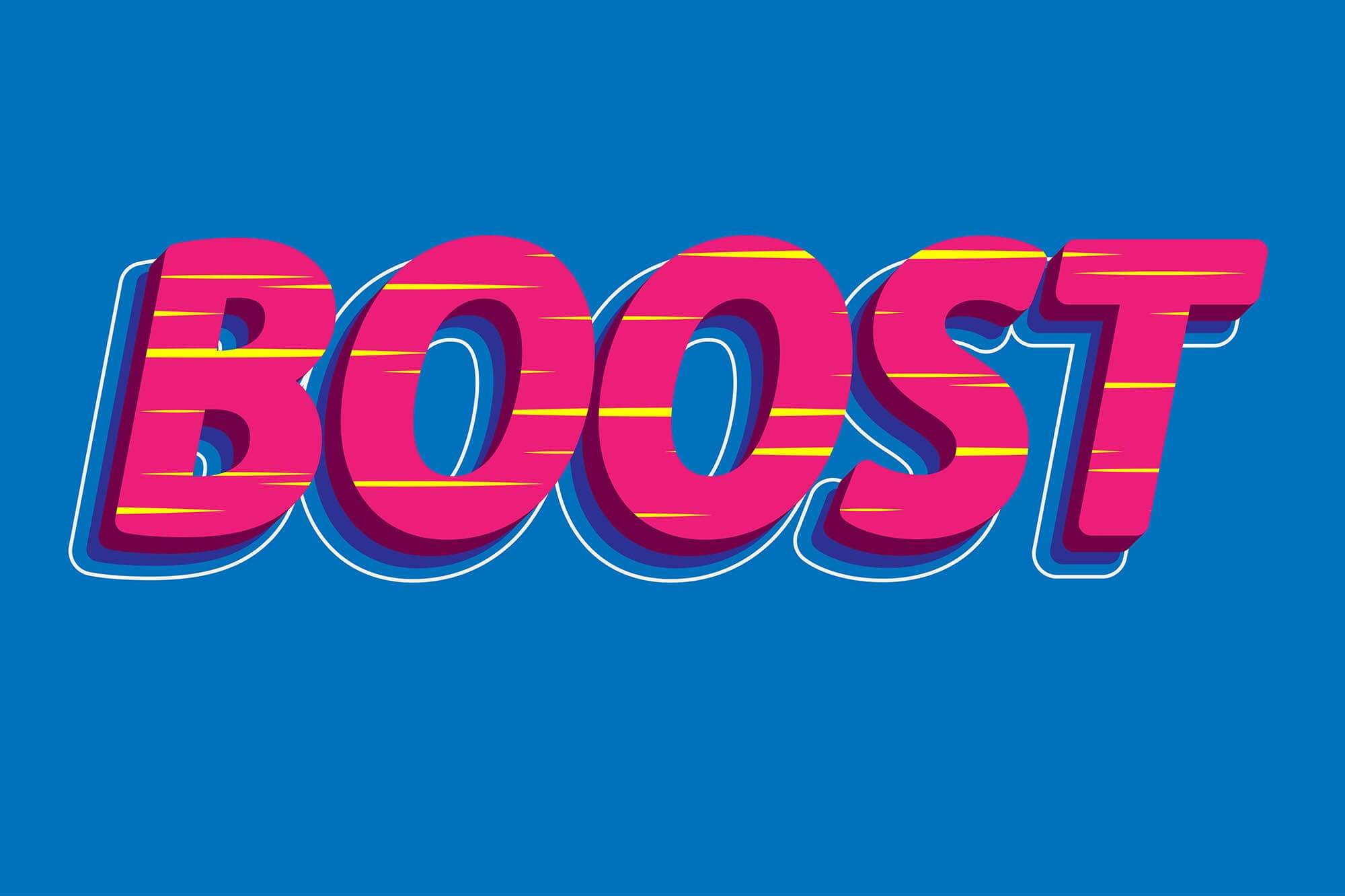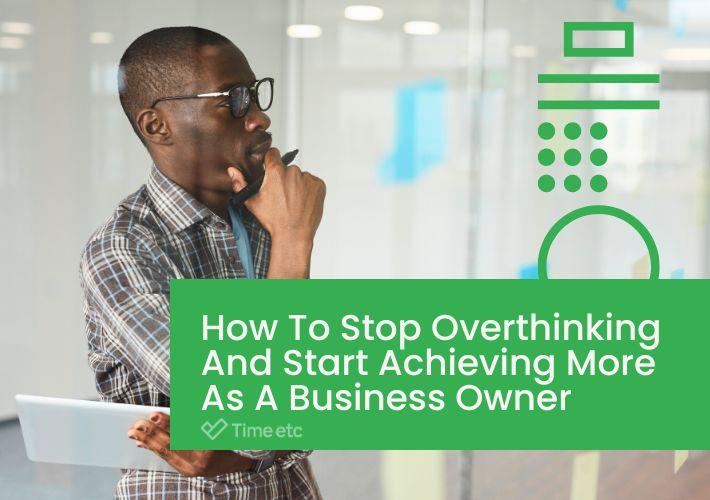We've become rightfully sceptical each time we see yet another headline discussing the ways Bob B. Businessman built a billion-dollar company by following one simple trick to turbocharge his productivity.
A quick internet search will uncover productivity "advice" ranging from taking cold showers or blasting heavy metal to power napping or hula-hooping at your desk. While the weird and wonderful might work for a few, it doesn’t work for the majority.
But that doesn't stop people from trying. Google searches for "improve my productivity" hit a five year high in February and September 2020. It seems the quest for ever-better efficiency, and the rewards it can yield, are worth the effort.
But to save entrepreneurs from time-wasting productivity hacks, we must sort the gimmicks from the truly effective and discover what methods we can actually rely on. These are our top five productivity-boosting methods, with compelling evidence to show they work:
- Gain greater self awareness
- Take more breaks, more often
- Find ways to hold yourself accountable
- Create deadlines & structure
- Learn the art of delegation
But first (the impatient can scroll down), what exactly do we mean by productivity?
Defining productivity
This question isn't as cut and dry as you might think. Economists who deal with 'big picture' productivity are simply applying a formula: how much output are you getting from your input? When people talk about 'the productivity puzzle' or 'national productivity', they are probably referring to labour productivity: how many goods are being produced based on the time, effort and skills of the workforce.
This isn't too far off the kind of productivity we'll look at here, but on a micro-scale. Most entrepreneurs are aware of just how much their time is worth (and if you aren't, you should be) and feel the pressing need to make each and every minute count.
The big difference between entrepreneur productivity and employee productivity is that workers normally have a job description and, if they don't, they at least understand what's expected of them. Entrepreneurs, on the other hand, choose what they do.
'Busy' is not productive
By applying the right amount of energy to the right tasks at the right time, entrepreneur productivity can have a direct impact on business success. We can all find jobs to add to our to-do lists, and feel busy accordingly, but to have an impact on business growth you have to be incredibly strict about where your time and energy is applied. Otherwise, your precious time will just be consumed by 'busywork'.
It's critical to understand the difference between being busy and being productive. For entrepreneurs, it's helpful to view productive work as anything that has a direct impact on the growth of your business. View busywork as anything that takes your energy and focus away from business growth.
Entrepreneur productivity isn't:
- Being busy
- Working long hours
- Doing tasks that could be automated or that someone else could do
Entrepreneur productivity is:
- Doing work that only you can do
- A skill that requires honing
- Directly affecting your business growth
Top tip: Why not sit down and write your own job description? Make sure that every single job on that list is directly related to the growth and success of your business. Everything else can and should be delegated or automated.
‘Busyness’ in stats
82% of entrepreneurs work more than 40 hours a week; 19% work 60+ hours per week
(The Alternative Board)
The UK works the longest hours in the EU but has lower productivity than EU countries with similar economies. In Denmark – the EU country with the shortest hours – workers put in more than four hours less than UK employees, but their productivity is 23.5% higher.
(Trade Union Congress)
60% or less of work time is actually spent productively
(Atlassian)
The average person deals with 56 distractions per day, and spends two hours recovering from those distractions
(Atlassian)
Five steps to greater productivity
I’m afraid we’re neither going to wave a magic wand, nor tell you that taking a daily ice bath or waking at 4AM to meditate is going to make your business successful.
The path to real productivity starts with understanding yourself better: how and why you procrastinate, what regularly steals your attention, and how the joyful freedom of entrepreneurship can also be a thorn in the side of efficiency.
And that begins with getting to know yourself better.
1. Gain greater self-awareness
"We cannot change what we are not aware of, and once we are aware, we cannot help but change."
Sheryl Sandberg
The first step on the path to productivity is to look within. Start by working through these questions:
- At work, what takes up most of your time? (e.g. meetings, reading and replying to emails, managing your team, firefighting, procrastination...)
- When and where do you do your best work?
- What always takes top priority?
- What is the hardest thing for you to focus on?
Once you know the answers to these questions, it’ll become immediately clearer what you should do. For example:
- I spend, on average, three hours a day in meetings. Which of those meetings have a direct impact on our business success? Could any of those daily meetings be replaced with weekly catch ups, or emails? Could someone else lead some of those meetings for me?
- I do my best work at 8AM and 6PM. Therefore, would it not be more sensible if I took an extended three hour break in the middle of the day?
- My priority is managing our team, but should I really be doing that when I could be focused on growth?
- I find it really hard to focus on anything on my to-do list that looks insurmountable, so I should probably break it down into smaller, more manageable tasks.
By dissecting your approach to work, you'll start to understand why you do the things you do, and avoid certain tasks. A little introspection goes a long way.
Did you know? Tuesday, Wednesday and Thursday are the most productive days, in that order. Friday is the least productive day, followed by Monday. And the most productive period during the workday is from 10:30AM to 3:00PM (Source: Prodoscore)
2. Take more breaks, more often
"Your mind will answer most questions if you learn to relax and wait for the answer."
William S. Burroughs
There is perhaps no better advert for convincing entrepreneurs they can and should take breaks, than Jeff Bezos. The world's wealthiest man and CEO of Amazon doesn't start work until 10AM, preferring instead to spend his mornings at home, reading the newspaper and eating breakfast with his children.
He views his job description as making a small number of high-quality decisions and he is well aware that, due to decision fatigue, making good choices gets harder throughout the day so, by 5PM, he stops and he makes sure he gets eight hours sleep per night, as told to CNBC.
Hustle culture tells us that pushing ourselves is the way to get ahead, but really you're simply setting yourself up for burnout. The myth that long hours are proportional to achieving more urgently needs to be replaced with an understanding that rest is, in fact, both restorative and conducive to entrepreneurial success.
A study published in the Scandanavian Journal of Work and Organizational Psychology looked at whether something as simple as taking a daily lunch break had any bearing on energy levels. It found that taking lunch breaks was related to a decrease in exhaustion and to an increase in vigor one year later, and it concluded that taking lunch offers an important setting for internal recovery during working days.
And a study published in The Lancet found that employees who work long hours have a higher risk of stroke than those working standard hours.
Many entrepreneurs don't realise that by skipping breaks, they aren't only compromising their energy levels, but also increasing their risk of serious illness.
Plus, without regular breaks, your capacity for creativity will be diminished and your work is more likely to be sub-par.
While it’s incredibly tempting to mentally chain yourself to your laptop to meet a deadline, it is usually far more effective to time your working bursts, and then force yourself away from the screen for a strategic, restorative break before doing another stint.
Research varies on how often you should be taking a break, but a popular hypothesis is Dr Nathaniel Kleitman's basic rest-activity cycle (BRAC) which suggests humans have an 80-120-minute attention span, after which brain activity slows down.
Top tip: As arguably the most powerful productivity tool we have, it's time to give rest and relaxation the respect it deserves. Reverse your approach to timetabling your workday and plan your breaks first, before fitting bursts of work in around them.
3. Find ways to hold yourself accountable
"Accountability is a statement of personal promise, both to yourself and to the people around you, to deliver specific defined results."
Brian Dive
If you have investors breathing down your neck, then you’ll already know the great power of accountability.
That entrepreneurs don't have managers may turn out to be one of their biggest downfalls.
So, one of the simplest and perhaps most important things an entrepreneur can do is to create accountability. There are a number of ways to do this:
- Share your to-do list with your team, and ask people to check up on you
- Schedule a meeting to discuss a completed a project, thus creating a deadline
- Pick an accountability 'partner', perhaps your co-founder or a business coach, and share your specific goals and deadlines
One study by the American Society of Training and Development found that people are 65% more likely to meet a goal after committing to another person. Their chances of success increase to 95% when they schedule regular meetings with their accountability partners to check in on their progress.
Telling yourself that you may not leave your desk until a task is finished does not work (see the section above on taking breaks!). Instead, you need to make it seem like more of a hassle to leave a task unfinished than to simply get it done.
4. Create deadlines and structure
"Too many choices or irrelevant options can cause hesitation, confusion, or worse - abandonment"
Nir Eyal
While one of the draws of entrepreneurship is freedom over our work and lives, it also leaves them prone to something we call 'failure by freedom'.
Structure is crucial. Without it, we drift aimlessly, and procrastination carries no penalty.
So, something as simple as using your calendar as a timetable and planning your day meticulously, down to the half-hour, can be an extremely powerful way to work.
It's a technique that Nir Eyal, author of Indistractable: How To Control Your Attention And Choose Your Life, calls "timeboxing". He says that although many people bristle at the idea of using a schedule planner, preferring the freedom to tackle things as they come up, they actually perform better under constraints. He adds: “Weekly schedules give us a framework, while nothingness torments us with the tyranny of choice."
When planning your day, we suggest you try these things:
- Plan your breaks before your tasks
- Specify the time you’re going to down tools for the day
- Share your timetable with your team: this adds a level of accountability, but mainly it stops people from distracting you at the wrong moment
- Keep an hour open for your team to interrupt you with questions
- Dedicate a time slot for social media and catching up on the news (or this could eat into every hour)
Top tip: During bursts of scheduled work, try using a stopwatch or an egg timer. The countdown –aka the threat of an imminent deadline – will focus your attention like nothing else. And there are, of course, apps for that.
5. Learn the art of delegation
"Deciding what not to do is as important as deciding what to do."
Jessica Jackley
It may feel like the opposite of productivity to simply do less work, but what should be clear by now is that working longer hours does not equal higher productivity, yet working smarter does.
If you've written your job description, and you understand where you add the most value in your business, then you're halfway there.
Behind every successful person you've ever heard of is a huge network of skilled people: assistants, techies, marketers, creatives, financiers and all manner of others. Steve Jobs had Steve Wozniak, Richard Branson had Penni Pike, George Washington had Alexander Hamilton and Sherlock had Watson.
You should be delegating any task that doesn't contribute to your business success. But also, (sorry to break it to you!) you’re just not very good at everything.
Good delegation is about knowing your limitations and saying goodbye to your inner control freak.
You will still need to make time to review the task you've delegated and offer feedback and advice, but you will still have saved time.
Shark Tank’s Barbara Corcoran tweeted: "I delegate everything I don't like to somebody else and realize that a job done 80% as well as you would do it, is good enough."
So, if you can get over your fear of things not being 'perfect', it will save you time, energy and cut out a great deal of stress. The math doesn't lie: saving just 20 minutes a day through delegation saves a total of 76 hours a year.







